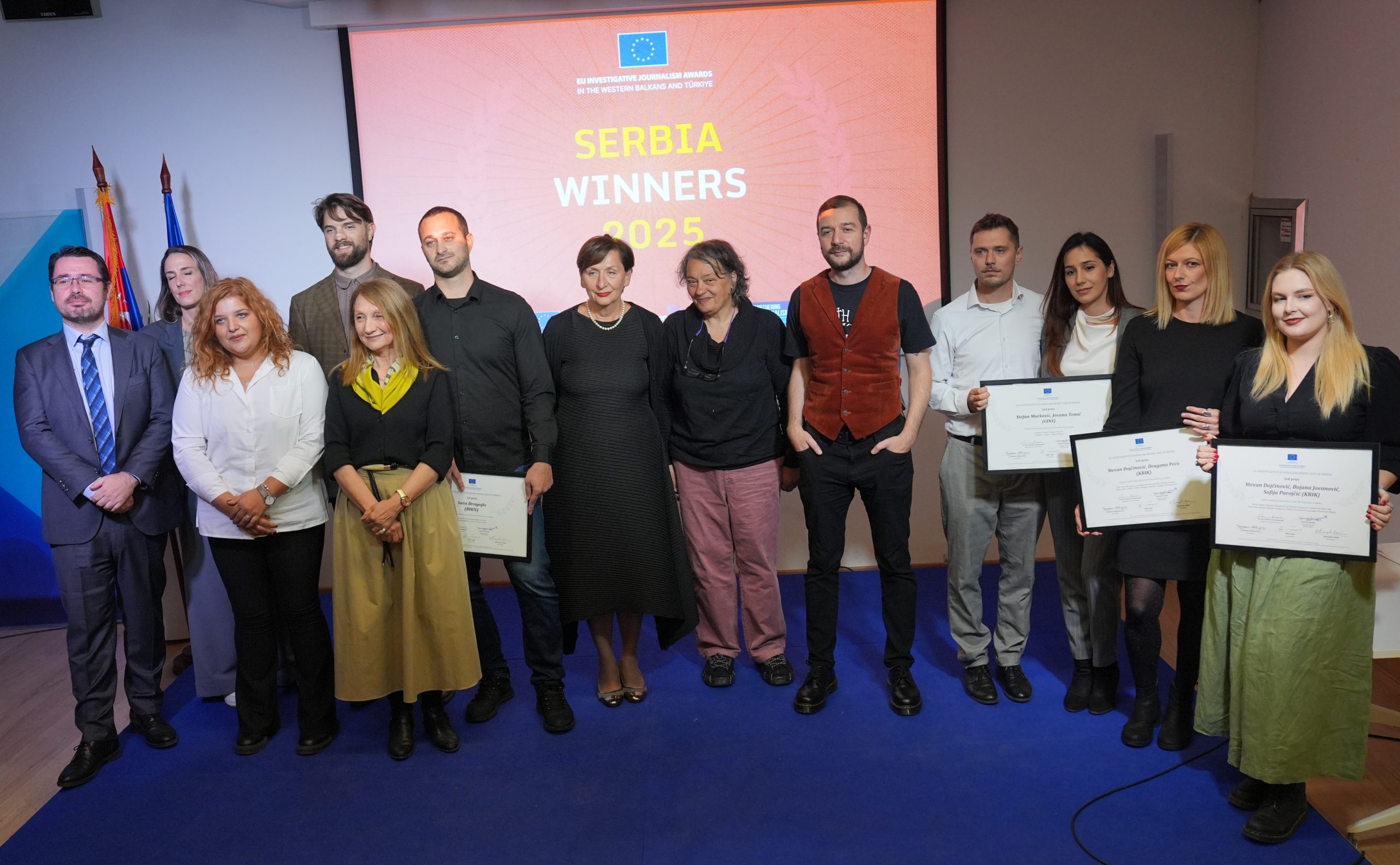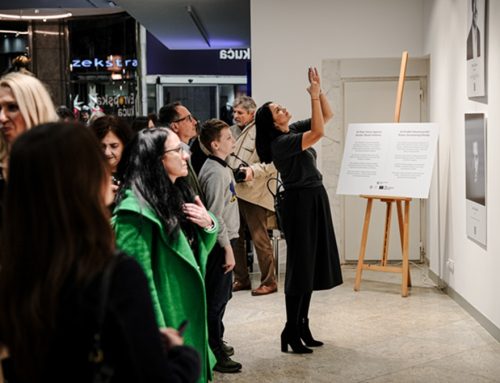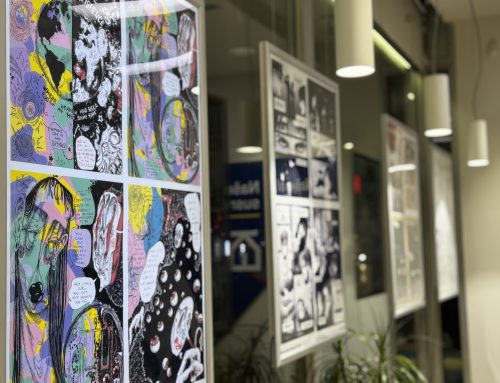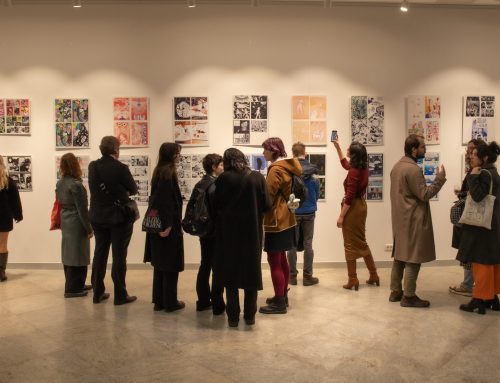BIRN journalists Aleksa Tešić and Saša Dragojlo won first prizes at the “EU Award for Investigative Journalism 2025”.
Among 34 investigative stories from Serbia published during 2024, the jury awarded the highest scores to Tešić’s piece “Proven: The BIA Hacks Activists’ Phones” and Dragojlo’s series on arms exports to Israel.
The remaining two places, second and third, shared also two stories.
BIRN journalists, whose story “Domestic Violence Against Children: The Invisible Victims” was produced in cooperation with local outlets 021, Južne vesti, Glas Šumadije and Bujanovačke, shared second place with CINS reporters for the podcast “Traces”, season “The Pit”, which reveals the circumstances of the Soko mine accident. Both third places went to KRIK’s investigative stories on links between the state and the Šarić clan, as well as the ruling party’s cooperation with Slobodan Tešić, a well-known arms dealer.
The winners were announced at an award ceremony held at the Europe House, hosted by Thomson Media.
The EU Award for Investigative Journalism, funded by the European Union, recognises the best investigative stories published in the previous calendar year across the Western Balkans and Turkey.
“It is impossible to celebrate the best of Serbia’s investigative journalism without acknowledging that this ceremony is taking place at one of the darkest moments for the profession — as journalists around the world, from Gaza to Belgrade, face pressure, threats and violence. Despite this, we received a record number of applications across the region, and 34 entries just for the competition in Serbia — submissions that in no way suggest a crisis in journalism”, said Sanja Lazić, representative of Thomson Media.
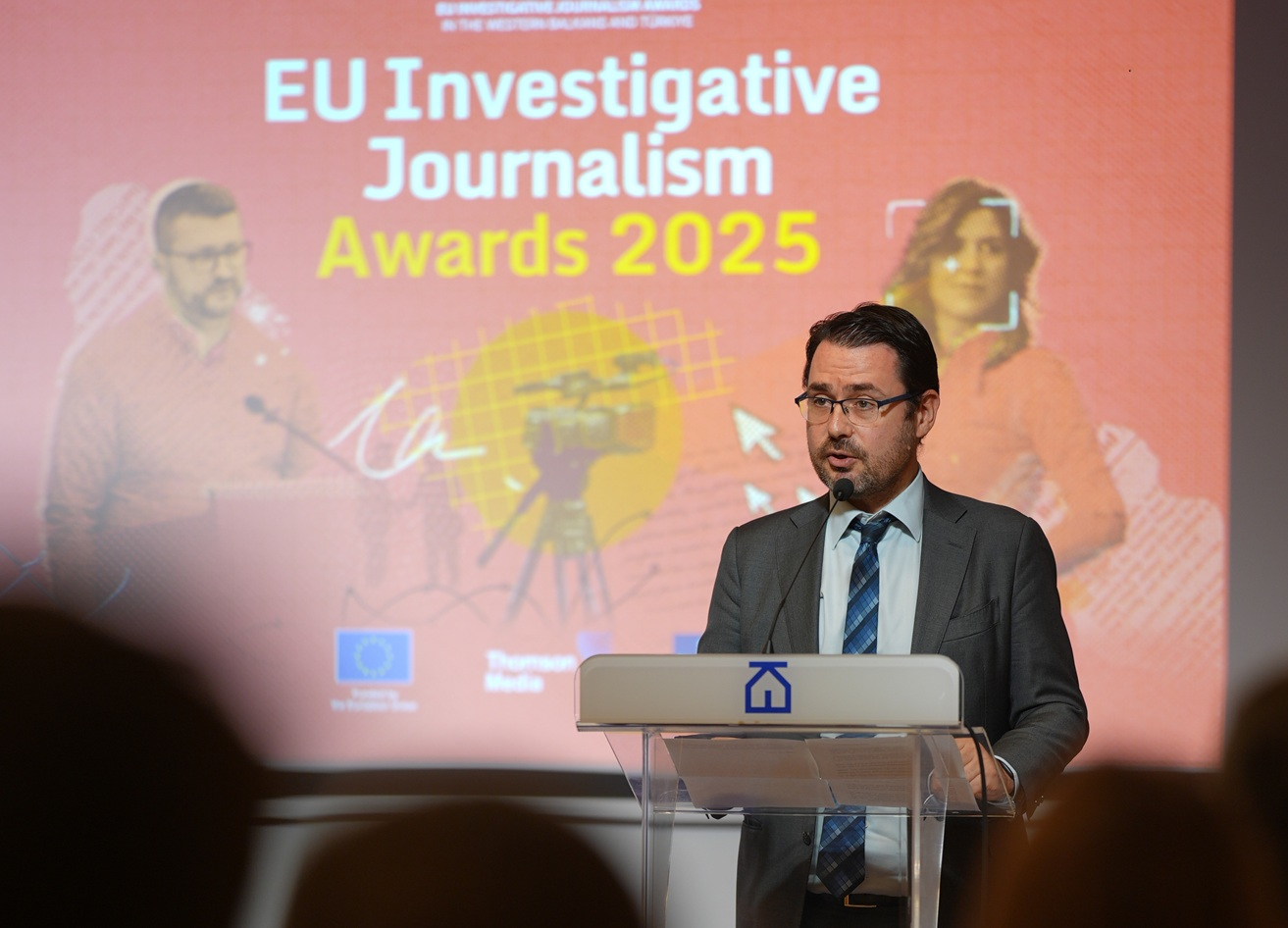
Manuel Munteanu, head of information, communication and media of the EU Delegation in Serbia
Manuel Munteanu, head of information, communication and media of the EU Delegation in Serbia, emphasized the importance of the courage of investigative journalists for the creation of quality stories.
“When we read an investigative story, let us not forget that brave individuals writing them often put their lives on the line to bring us the truth, and it is our collective responsibility to ensure their protection. The European Union will therefore continue to advocate for stronger frameworks that safeguard media freedom as well as recognize and celebrate the invaluable contributions journalists in general, and investigative journalism in particular, bring to societies, just like we do through these awards”, stated Munteanu.
This year’s winners were selected by a three-member jury: Aleksandra Nikšić, editor at BBC News Serbian, Snježana Milivojević, professor at the Faculty of Political Sciences in Belgrade, and Milka Tadić, president of the Centre for Investigative Journalism in Montenegro.
WINNING STORIES:
1st Prize:
- Aleksa Tešić (BIRN) — Proven: BIA Hacks Activists’ Phones
- Saša Dragojlo (BIRN) — Series of articles on arms exports to Israel
2nd Prize:
- Gordana Andrić, Dragana Prica Kovačević and Teodora Ćurčić (BIRN) — Domestic Violence Against Children: The Invisible Victims
- Stefan Marković, Jovana Tomić (CINS) — Podcast “Traces”, season “The Pit”
3rd Prize:
- Stevan Dojčinović, Bojana Jovanović and Sofija Parojčić (KRIK) — Police report: Nebojša Stefanović and Marko Parezanović Helped the Šarić Clan
- Stevan Dojčinović, Dragana Pećo (KRIK) — Tešić Uses “Pawns” from the SNS to Evade Sanctions and Earn Millions of Euros
The prize fund totals EUR 10,000 — the first prize is EUR 5,000, the second EUR 3,000, and the third EUR 2,000.
Journalists from Serbia also have the opportunity to compete for the regional recognition, which rewards the best investigative stories with regional impact and will be judged by a separate jury. The winners of the regional competition will be announced in the last week of November at a ceremony in Pristina.
About the EU Award for Investigative Journalism
The EU Award for Investigative Journalism is organised by Thomson Media, a media organisation dedicated to media development and promoting press freedom worldwide. The project is funded by the European Union and implemented by a consortium comprising the Balkan Investigative Reporting Network – BIRN Hub, Central European University (CEU) – Hungary, Association of Journalists (AJ) – Turkey, Thomson Media (TM) – Germany, Goce Delčev University of Štip (UGD) – North Macedonia, the Independent Trade Union of Journalists and Media Workers (SSNM) – North Macedonia, the South East Europe Media Association (MASE) – Montenegro, and the Balkan Investigative Reporting Network Kosovo (BIRN Kosovo).

